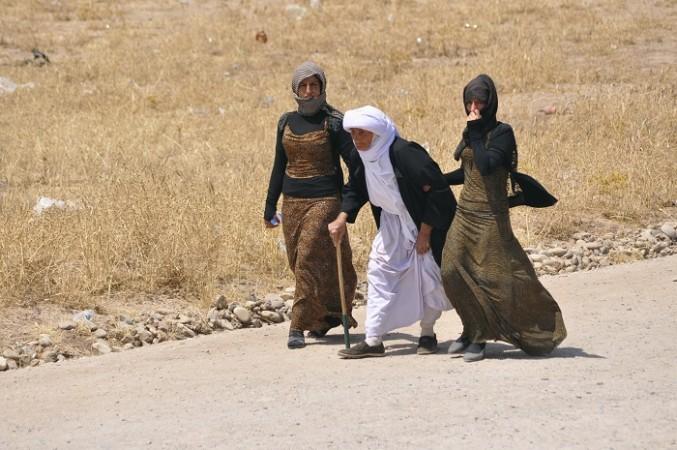
A Yazidi teenager, who was sold as a sex slave by the Islamic State, was horrified when she came face-to-face with her captor in Germany, where she took refuge after escaping from captivity in Iraq.
Ashwaq was 14 when IS fighters stormed into northern Iraq from Syria in 2014 and captured territory including the heartland of the Yazidis.
Thousands of Yazidi women were taken as sex slaves by the militants and Ashwaq was one of them. She was sold to a man named Abu Hamam for $100.
She was repeatedly raped and beaten but somehow managed to escape three months later to Germany along with her mother and a brother.
A few months ago, while she was on her way to the school, a car pulled up next to her outside a supermarket in the town of Schwäbisch Gmünd and a man sitting in the front seat started talking to her in German.
"Are you Ashwaq?" the man asked her. Shaking with fright, Ashwaq said: "No, who are you?"
"I am Abu Humam and I know you are Aswaq," the man replied.
She said he started speaking in Arabic and asked her not to lie.
He told her that he knew where she lived and with whom and knew everything about her life in Germany.
She added she was shocked because she never believed that she would see something like this in Germany.
"I left my loved ones and my homeland and went to Europe to forget the trauma I went through. The least I expected was to run into my captor and that he knew everything about me," she says.
Ashwaq reported the incident to the police and told them everything, including what happened to her in Iraq.
The police made an e-fit (Electronic Facial Identification Technique) of the suspect and asked her to immediately contact them if she came across him again. She requested them to check CCTV of the supermarket but says they did not do that.
"I waited for a month but got no news," she says.
Fearing that she might again see the IS man and wanting to reunite with her sisters, who had been rescued from IS captivity recently, Ashwaq returned to northern Iraq, leaving behind all hopes of starting a new life in Germany.
A spokeswoman for Germany's top court says the police tried to locate Abu Humam but were unsuccessful.
As part of their investigations, the police tried to contact her again in June this year but by then she was back in Iraq.
Activists working for Iraqi refugees say hers is not an isolated case.
"I have heard of many cases where female Yazidi refugees have recognised IS fighters in Germany," says Düzen Tekkal, activist and founder, Hawar.Help, a Berlin-based organisation which fights for Yazidi rights.
Ashwaq, who now lives in a Yazidi camp set up in an area held by Kurds, says she will never go to Germany again.
She wants to continue her education but wants to get out of the country along with her family.
"We don't feel safe here. We are scared of the IS," says her father.
The family is now applying to live in Australia, part of a resettlement plan especially made for women who were abducted by the Islamic State.

















